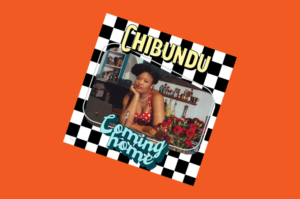Nadifa Mohamed’s NYT review of Jeffery Gettleman’s new book Love, Africa draws attention to the centuries-long misrepresentation of Africa in certain kinds of western narratives.
A memoir is an opportunity for a writer to put his or her life on trial, but few follow through and condemn themselves too. Jeffrey Gettleman, this newspaper’s Pulitzer Prize-winning East Africa correspondent, fell in love with Africa while still a self-described frat boy; at Cornell he met his other great love, Courtenay, an alluring sorority girl. The twisted road that eventually allows him to unite these two conflicting passions takes the reader through a melodrama that squats uncomfortably between “Eat, Pray, Love” and “Heart of Darkness.”
Africa. That vast swell of nations, languages, landscapes and histories has always had a peculiar impact on foreigners, but Gettleman seems to have been hit harder than most. The continent is described as his “imaginary friend,” a place that his fraternity brothers cannot possibly understand: basically a high-five-happy Shangri-La where the people are poor but rarely resentful. It is a place where he felt “worshiped” during a summertime visit, and to which he hankers to return.
…
I have perceived in many works on Somalia by Western journalists some of the wild-eyed joy you see in photos of youths running with the bulls in Pamplona — a macho thrill that life there is supposed to be short and cheap, an almost sensual delight in, say, the “dark, unblinking eyes” and “chains of bullets.” “Love, Africa” follows in that tradition.
Read the full review HERE.
Gettleman’s book was published in May. Its amazon.com blurb describes it as “a passionate, revealing story about finding love and finding a calling, set against one of the most turbulent regions in the world.” Right off the bat, we know what we are getting into: a story of self-discovery set against the background of Africa as a world in crisis. Then we are told that Gettleman is a Pulitzer Prize winning journalist who “has covered every major conflict over the past twenty years, from Afghanistan to Iraq to the Congo.” Clearly, you can’t be considered an expert on writing about Africa until you’ve covered conflict. And Gettleman is clearly a conflict expert: Afghanistan, Iraq, Congo. Wow! The man really knows his third world. In another section of the synopsis, Gettleman’s teenage years is described as “a terrifying, exciting, dreamlike part of the world in the throes of change that imprinted itself on his imagination and on his heart.” It’s remarkable that Gettleman’s publishers imagine he is the first person to imagine Africa in delirious opposites: exciting and terrifying.
As it turns out, Gettleman is not the first. It doesn’t take more research to know that when a white man goes to Africa, two things happen: either he find himself or loses himself. And then maybe a third thing: he comes back home and then writes a book about it. There is a long tradition of Americans and Europeans who have lived in Africa writing about Africa. It is an old and established mode of writing with its own conventions and artistic form, which most of the time amounts to recycled cliches and self-serving reflections.
When Achebe called the English novelist Joseph Conrad a “bloody racist,” he was speaking from a place of frustration at how much this strange archive of writing had been normalized, how okay it had become to see Africa as this place where white men either found or lost themselves or a place they either loved or hated, all the while making themselves loom so largely as a kind of savior or martyr.
Perhaps someone should have told Gettleman that this story line had been overwritten to death, that the idea of a white man using Africa as “mere prop” in a self-aggrandizing narrative about adventure and self-discovery will always attract suspicion. But no one did. It’s a wonder that after Achebe’s essay on Conrad, Binyavanga Wainaina’s How to Write About Africa, and Teju Cole’s White Savior Industrial Complex, we still have to deal with these kinds of narratives.
**********
Facebook link image by Madi Robson on Unsplash










Gwen S. August 05, 2017 15:22
Thank you for for your candor, for I too am exhausted with "African" stories told through the white gaze. Therefore, I am so grateful for Brittle Paper, it has allowed me to read the amazing works of many Black African writers that I wouldn't have known about otherwise.